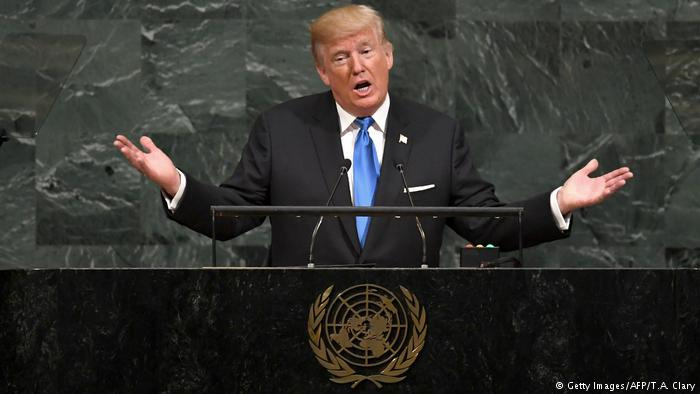The Consequences of Trump’s Decertification of Iran Accord

There are multiple, both short and long term, consequences of Trump's reported readiness to decertify the Iran nuclear deal by October 15, 2017. Presently, the US media is awash with unconfirmed reports that the Trump administration has finalized its decision after much heated internal debate, and dissension involving some cabinet members, which will certainly wreak havoc with the other signatories of the deal, known as the Joint Comprehensive Plan of Action (JCPOA), that is, Russia, China, France, England, and Germany, not to overlook the European Union (EU), all of whom have put up strong defenses of the agreement reached in the Summer of 2015.
The first question raised here is if Trump will officially decertify or simply refuse to recertify, as he has done already on two occasions since assuming presidency? The distinction is important and carries significant ramifications for the fate of JCPOA. In the former case, the JCPOA's conflict-resolution mechanism in the form of the Joint Commission would be triggered, allowing Iran to complain to both the Commission as well as to the UN Security Council, in light of the repeated confirmation of Iran's technical compliance by the International Atomic Energy Agency (IAEA). But, in the latter case, the White House would be playing in the grey area, falling short of decertification and hurling the matter to the bosom of the US Congress, where there is serious division over the JCPOA particularly in the US Senate as some key Republican lawmakers favor sticking with the JCPOA instead of scrapping it. Delegating an important foreign policy decision to the legislative branch is, of course, out of character for the executive branch and, therefore, one wonders about the durability of any such decision by Trump, likely to trigger a congressional impasse rather than a breakthrough.
The second question is what is the administration's real and ultimate intention? If the intention is to ratchet up pressure on Tehran and pursue a new linkage diplomacy, linking the JCPOA to non-nuclear issues for leverage, then the Trump administration must thread a careful path not to antagonize its European partners, who are benefiting from the economic windfall of the JCPOA, particularly if the new policy drift on Iran culminates in fresh sanctions against Iran violating certain terms of the agreement. So far, the Trump administration has not bracketed the rhetoric on "renegotiating" the JCPOA, which is long on slogans and short on substance, given the supreme difficulties of finding suitable standards by which any non-nuclear issue would be determined to be in compliance of non-compliance by Iran in such a scenario, which would drag into the picture the rogue behavior of US's allies in the region, above all Saudi Arabia, which has been killing Yemen civilians mercilessly for over two years. The value of "renegotiation" option is that it gives certain leeway to the US Department of State led by Rex Tillerson, who is reportedly at odds with Trump over the JCPOA, per his own admission, thus creating a potential venue for US-Iran diplomatic liaison, both bilaterally and multilaterally. Hypothetically speaking, Iran may be amenable to negotiate a further freeze on its uranium enrichment activities, beyond the time limits set by the JCPOA, if the US is willing to lift the so-called primary sanctions on Iran. For this to happen, however, the US must de-escalate its present demonization of Iran, which raises Iran's national security concerns. In other words, a suitable environment would have to be created, which is sadly lacking at the present juncture in US-Iran relations.
With respect to other consequences of Trump's decertification of the deal, it could spell doom for the JCPOA if it is followed by the US's refusal to renew the lifting of sanctions removed under the JCPOA, in light of Iran's warning that it may resume full nuclear activities. From Iran's vantage point, however, it is important to maintain business as normal with the rest of the world and continue to harvest the economic benefits of JCPOA, which has resulted in financial credits to Iran and numerous trade agreements, instead of allowing the White House's provocation to derail these on-going achievements. As a result, a careful counter-strategy by Iran is called for that would require constant consultation with the other "5 + 1" nations minus US, in order to offset the debilitating consequences of any decertification, whether direct or indirect (i.e., refusal to certify).
Finally, an open question here is what legal remedies are available to Iran vis-à-vis a US turnabout on the JCPOA, and whether or not both the IAEA Governing Board, the Security Council, and the international tribunals can be resorted to by Iran citing a US violation of an international agreement -- that from the prism of international soft law is legally binding as it is authorized by the UN law. For now, however, the JCPOA's own internal mechanism of the Joint Commission is the most suitable forum to tackle the issue, as a prelude for broader actions by Iran.

